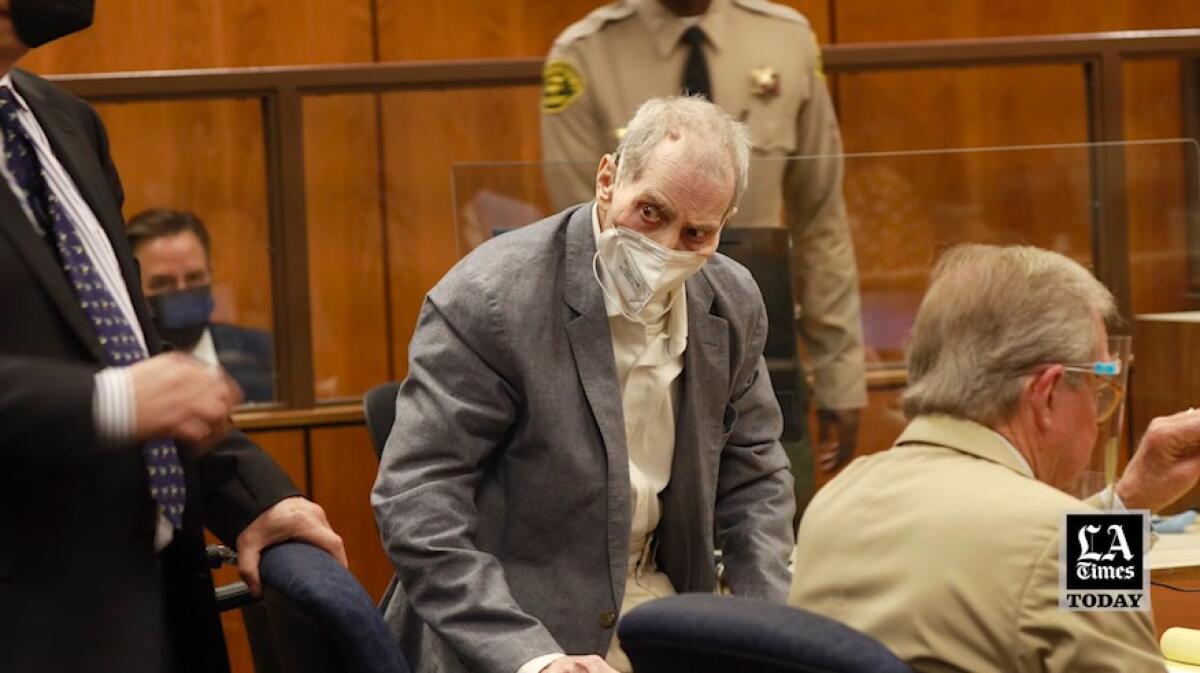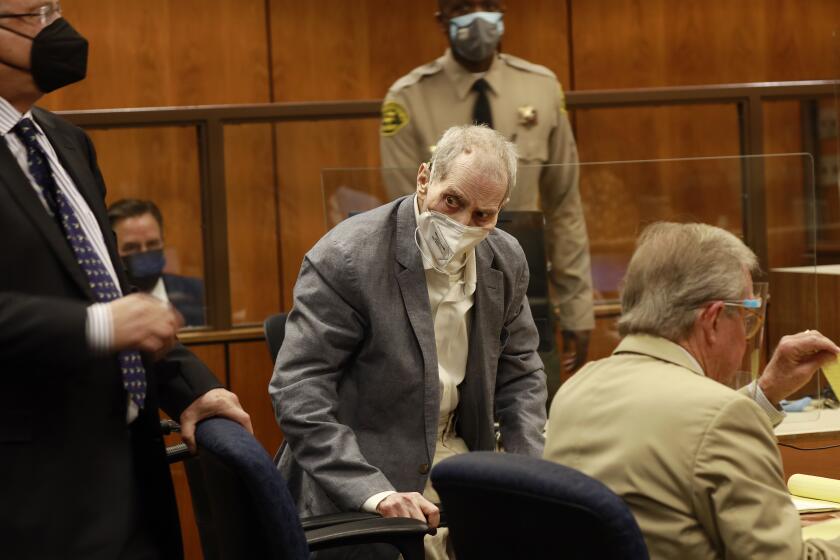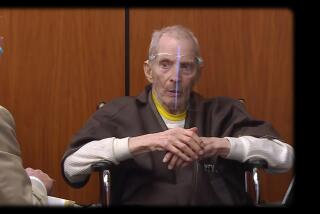N.Y. prosecutors to seek charges against Robert Durst in 1982 disappearance of first wife

- Share via
Prosecutors in New York will seek criminal charges against Robert Durst in connection with the 1982 disappearance of his first wife, Kathie McCormack, according to a person with knowledge of the investigation.
The Westchester County district attorney’s office will convene a grand jury within the next few weeks to weigh charges against the 78-year-old, who was convicted of murder in Los Angeles last month, according to the person, who spoke on the condition of anonymity because they were not authorized to discuss the matter with the media.
During a five-month trial in Inglewood, L.A. County prosecutors repeatedly invoked McCormack’s disappearance as the motive behind Durst’s decision to gun down his close friend, Susan Berman, inside her Benedict Canyon home in 2000. Police have long believed that Durst killed McCormack in 1982 and that Berman placed a phone call that obscured the timeline of her disappearance.
The Westchester County district attorney’s offices and Durst’s lead defense attorney, Dick DeGuerin, did not immediately respond to requests for comment Friday. The Los Angeles County district attorney’s office declined to comment. The convening of the grand jury was first reported by News 12 in Westchester, and later by the New York Daily News.
Westchester County Dist. Atty. Miriam Roach reopened her office’s investigation into McCormack’s disappearance when she took office in 2021, and publicly commended prosecutors for winning a conviction against Durst in Los Angeles last month. Otherwise, she has said little publicly about the case.
Robert Durst was convicted Friday in the murder of Susan Berman, bringing to a close a decades-long legal saga that has seen the New York real estate heir accused of killing three people.
Durst is scheduled to be sentenced in Berman’s killing on Oct. 14. Since the Los Angeles jury upheld the special circumstance allegation that Durst killed Berman because she was a witness to another crime, he can only be sentenced to life without parole or death under California law. Los Angeles County prosecutors chose not to seek the death penalty against Durst, so he must face a life sentence.
The convening of a grand jury is the latest twist in a four-decade-long legal saga that has seen Durst face two criminal trials after being linked to three separate deaths and vanishings in New York, California and Texas.
Durst was arrested for Berman’s murder in 2015, but it took nearly six years to bring him to trial. Over the course of 11 weeks, prosecutors meticulously laid out their case against Durst, claiming he shot Berman to cover up the death of his wife 19 years earlier. By his own admission, Durst had abused McCormack, physically and emotionally. Prosecutors argued that Durst killed his wife in 1982 inside their home in South Salem in Westchester County.
The next day, a woman called a dean at Albert Einstein College of Medicine in Manhattan, where McCormack was studying to become a doctor. The caller identified herself as McCormack and told the dean she was too ill to come to class. That caller, the prosecution argued, was Berman.
At the same time, Durst made calls from a pay phone in Ship Bottom, N.J., a beach town close to the state’s Pine Barrens forest, where prosecutors believe he disposed of McCormack’s body.
Durst has long denied having any role in either his wife’s disappearance or Berman’s murder. During 15 days of dramatic testimony during his Los Angeles trial this year, Durst said that he discovered Berman’s body and alerted authorities to her death.
More to Read
Sign up for Essential California
The most important California stories and recommendations in your inbox every morning.
You may occasionally receive promotional content from the Los Angeles Times.












